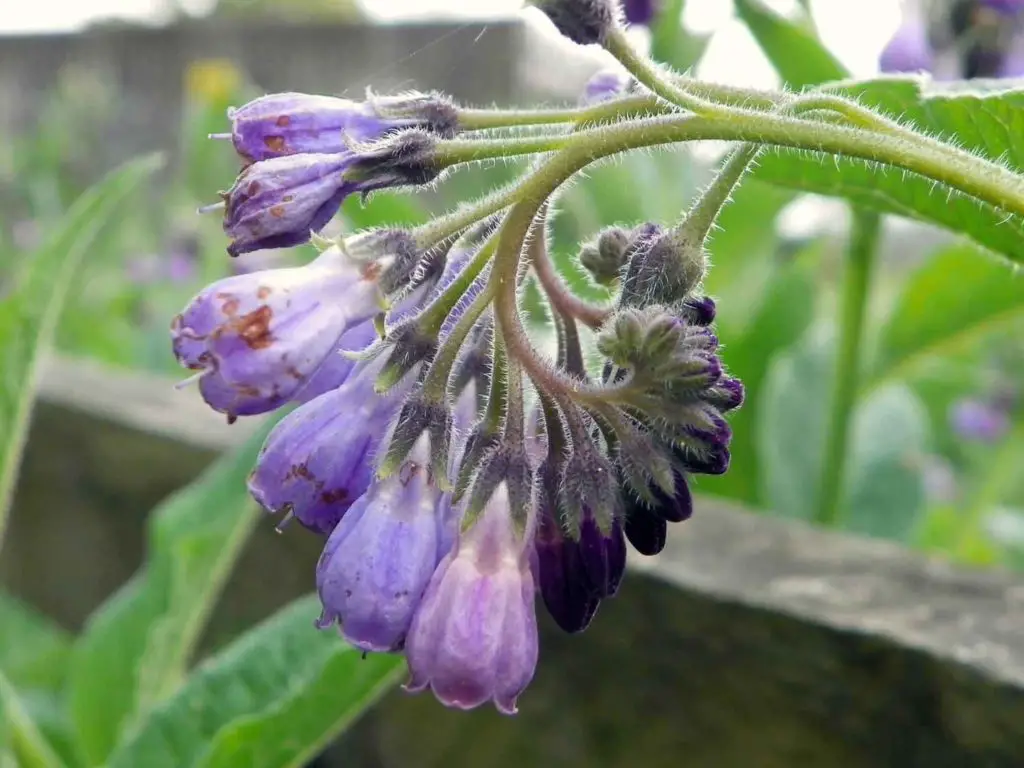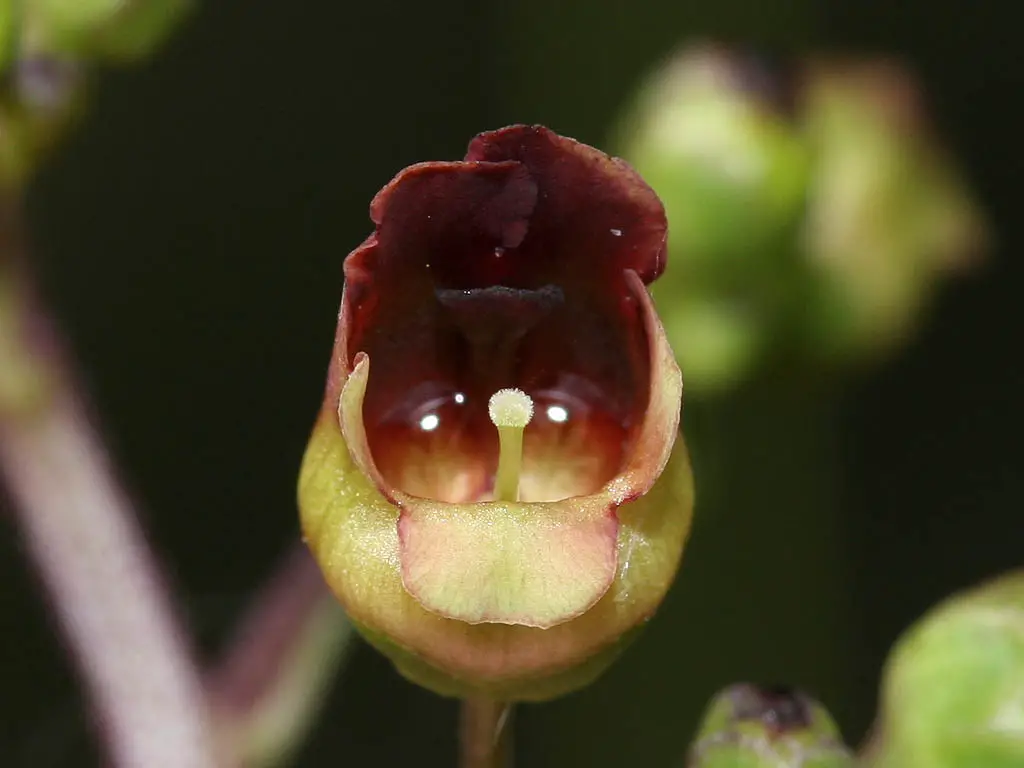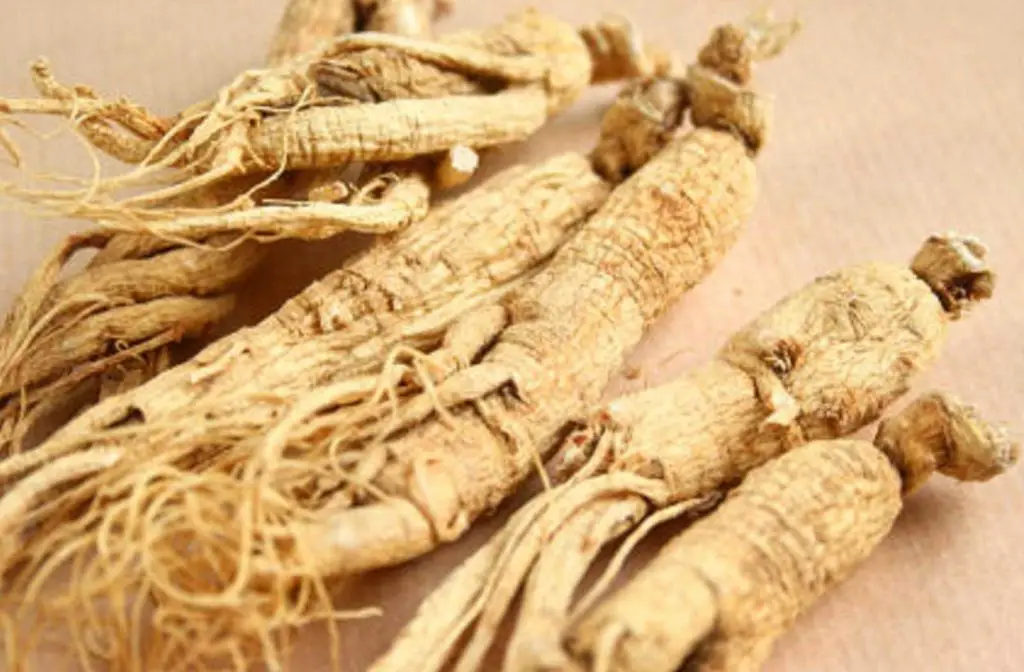What is Mushroom Coffee?
Mushroom coffee is coffee brewed with an extra ingredient: dried or powdered mushrooms. By boiling dried and/or powdered mushrooms in a typical brew, it is thought that the coffee absorbs the extra vitamins, minerals, and other nutrients that are in the mushrooms. Many mushroom coffees sold now look and taste just like normal coffee, but they just include mushroom extracts. Many claim to feel more invigorated and energized after drinking mushroom coffee.
Mushroom coffee, tea, and wines date back to Ancient Chinese medicinal practices, but their use is not limited to that era or culture. During World War I and II, for example, Chaga mushrooms were brewed into a coffee substitute by the Finnish due to frequent shortages in supplies, including coffee.
Mushroom Coffee vs Regular Coffee: Whats the Difference?
The earthy flavor of the mushrooms combined with the bold flavor of coffee beans is thought to create a smoother tasting coffee compared to the strong and bitter flavor of a typical cup of coffee. Although, some people say they do not taste a difference from normal coffee at all. The mushrooms are thought to provide a healthier and less jittery boost due to its added nutrients, compared to regular coffee that relies on heavy amounts of caffeine which may cause insomnia and anxiety. Many people say they do not experience a “crash” after drinking mushroom coffee like they would after drinking regular coffee.
What is the Best Mushroom Coffee Mix?
There are several different variations of mushroom coffees, and some have been traditionally used for different purposes. What ties these varieties together is that mushroom coffee is almost always made specifically using medicinal mushrooms and not mushrooms that are typically used in cuisine. Different dosages are recommended for these different varieties as well. The best Mushroom Coffee Mix comes down to personal preference as each mushroom has different benefits.

Lion’s Mane Mushroom Coffee
Lion’s Mane Mushrooms are known by several other names as including Hericium erinaceus (its scientific name), Yamabushitake, and Satyr’s Beard. Its popular name of “Lion’s Mane” stems from the tuffs that grow from the fungus which resembles the fur of a mane. This coffee mix is thought to permanently boost brain function, protect the brain, and even promote nerve growth. It was used in traditional Chinese medicine, and the mushroom itself is native to China, Japan, North America, and Europe. It was often eaten by Buddhist monks because it was seen as a mystical source of nutrition. A dosage ranging from 500-3000 mg is recommended for Lion’s Mane mushroom coffee.
Chaga Mushroom Coffee
Chaga mushrooms, also known as Inonotus obliquus, is a parasitic mushroom that typically lives on birch trees and is limited to the Northern Hemisphere. Chaga comes from the Russian word for mushroom and is also called “Black Gold.” It is most often cultivated in Siberia, Canada, Alaska, and a few other northern areas of the continental United States. They can be easy to miss in the wild as many people mistake them for burnt charcoal, but the fungus grows to me very large, with some saying it may grow as large as a human head. Due to its popularity, chaga has been over cultivated in recent years making wild reserves scarce. Therefore, scientists have been developing methods to grow chaga in a laboratory setting. Recommended doses of chaga are approximately 10 grams per serving of coffee or tea which can be consumed one or twice daily.
Reishi Mushroom Coffee
Reishi mushrooms are also known as Ganoderma (scientific name), Lingzhi, “Mushroom of Immortality,” and the “King of Mushrooms.” It has been used in traditional Chinese medicine for over 2000 years, making it one of the longest used medicinal mushrooms. These mushrooms have a long history of being used for anti-inflammatory purposes and to increase longevity. Many of its uses rely heavily on anecdotal evidence, but some studies are being developed and executed to test the medicinal properties of the mushroom. At this time, not specific dosage is recommended for any particular ailment, and dosing may depend on several factors like age, height, weight, current medications, etc.
Cordyceps Mushroom Coffee
Cordyceps mushrooms are not actually mushrooms at all. They belong to a group of fungi called ascomycetes, or sac fungi, which include other fungi like truffles and yeast. Many species of Cordyceps are parasitic and feed on insects, and some even grow on the backs of caterpillars. During its parasitic growth, it slowly kills the insect in the process, taking over nearly 90% of its body weight. Cordyceps can inflate to nearly 300-500 milligrams. Cordyceps grow at high altitudes and are found in the Chinese Himalayas, but the main species used in traditional medicine, Cordyceps sinensis, is very rare and thus expensive. Therefore, many other species are used today, and some varieties are produced synthetically. You can buy a mushroom mix with Coryceps or you can buy the powder itself and mix it into your coffee.
Mushroom Coffee Benefits and Uses
Brain
Lion’s Mane mushroom coffee has long been used to protect the brain and prevent neurodegenerative diseases. There is some evidence to back this up. In 2009 a Japanese study was published showing that Lion’s Mane improved mild cognitive impairment in a group of 30 men and women ranging from the ages of fifty to eighty. A larger clinical trial is still needed to confirm these results, but the initial report is promising.
Nerves
Aside from improving cognitive health, Lion’s Mane mushroom coffee has also been used as a neuroprotective agent and even to promote nerve regeneration. Many studies confirm Lion’s Mane’s ability to create new neurons. With all the ground-breaking research available on Lion’s Mane, some are even suggesting it can be used to treat severe neurological problems like Alzheimer’s, dementia, senility, muscular dystrophy, and Parkinson’s Disease, because it is able promote Nerve Growth Factor.
Anxiety and Depression
A small study of thirty people that was performed in 2010 showed that four weeks of supplementation using Lion’s Mane decreased anxiety and depression.
Inflammation
Reishi has long been known to have anti-inflammatory properties and has been the subject of several studies for this reason. Chaga also has anti-inflammatory properties and has shown to improve symptoms and reduce oxidative stress caused by inflammatory bowel disease in a study conducted in 2007. A 2012 study showed that chaga may also reduce inflammation caused by ulcerative colitis in mice. Lion’s Mane also has anti-inflammatory effects and was shown to reduce inflammation in adipose tissue in obese patients in 2012. A 2015 study also confirms that Cordyceps may also be used as an anti-inflammatory supplement.
Immune System
Some varieties of mushroom coffee are thought to boost the immune system. For example, Cordyceps may actually be able to prevent symptoms of the immune disease leaky gut syndrome by regulating the amount bacteria in the digestive system, as reported in several studies. A small animal study also showed that Cordyceps may help fight germs, because mice treated with the fungus often recovered from illness quicker than those that were not. Reishi mushroom coffee may also be used to boost the immune system, and there are numerous scientific writings supporting this. Chaga mushrooms have been shown to have an anti-viral effect in vitro studies. Lion’s Mane has also been the subject of numerous studies, many of them showing it has immuno-protective effects and even promotes faster healing of wounds and hastens recovery from illness. Another study from 1994 shows that Lion’s Mane also improves the immune system’s reaction to arthritis.
Energy
Chaga mushrooms may have a potential anti-fatigue and energy inducing effect. A study published in 2015 showed that mice that were given chaga before swimming were also to swim longer before becoming exhausted. Lion’s Mane has similar effects, exhibited by another 2015 study, and as such may even have applications for sports medicine. Cordyceps also has been shown to increase stamina in scientific studies.
Cancer
All varieties of mushroom coffee may have anti-cancer effects. Studies show that the fungus Cordyceps may be act as a cancer preventative due to the numerous anti-oxidants it releases in the body once ingested. Some suggest Cordyceps during or following chemotherapy treatments can lessen the severity of the symptoms and helps the boost the body’s immune system after it has been destroyed by radiation treatment. Reishi mushroom coffee can be used for similar purposes; a 2013 study showed that reishi has anti-tumor effects on inflammatory breast cancer. Chaga mushrooms were also used as a traditional cancer medicine, and the anti-tumor effects of chaga have been a subject of scientific research since the 1980’s, although larger human studies are still needed. One case shoed that Chaga has inhibitory effects on colon cancer and hepatoma cells. Lion’s Mane also showed to inhibit metastasis of lung cancer in mice in a 2012 study.
Anti-Aging
A animal study showed that Cordyceps had anti-aging effects on mice.
Testosterone
Cordyceps has shown to boost testosterone levels leading to increased fertility and sexual function in men. Cordyceps also produces a protein which is hypothesized to help the penis maintain blood flow in order to maintain an erection, as demonstrated in a 2000 and 2003 study.
Liver
Cordyceps was used successfully in multiple clinical trials and animal studies to treat liver conditions like hepatitis and similar diseases. Cordyceps not only improves immune function in patients suffering from hepatitis, but also inhibits the spread of hepatitis to other cells. A study published in 2013 showed that reishi also has liver-protecting effects and improves overall liver function. Research on chaga shows that is also has benefits for those suffering with hepatitis.
Digestion
Although the research is still in its preliminary stages, Lion’s Mane has shown to have a protective effect on the gastrointestinal system in a 2013 study. It may also help treat and help gastrointestinal ulcers, as shown in a 2015 study.
Diabetes
The research is still preliminary, but in an animal experiment Cordyceps was shown to produce compounds that are known to maintain insulin and blood sugar levels, two important things that require monitoring for those who have diabetes.
Atherosclerosis
This condition is one that causes hardening of the blood vessels, which in turn can cause high cholesterol, high blood pressure, and inhibit blood flow. A study performed in 2014 showed that Lion’s Mane may actually reduce the severity of this condition.
Allergies
Reishi mushroom coffee can be used to reduce allergic responses, as indicated by one study that showed the mushroom produces triterpenes which inhibit allergies. Chaga has also been reported to have similar effects in animal studies.

Mushroom Coffee Side Effects, Safety, Dangers and Warnings
Most suppliers of mushroom coffee suggest not exceeding more than two servings of coffee daily, not because there is a risk of ingesting too much mushroom, but to avoid a caffeine overdose. Side effects and toxicity reports vary depending on the type of mushroom used to brew coffee.
Lion’s Mane Mushroom Coffee: A rat-model study showed that there is no toxicity reported if more than the recommended maximum dosage of 3000 mg is ingested. However, there are no added benefits from ingesting more than that because the body can only absorb so much of the nutrients at one time. Some people report experiencing the side effect of itchy skin, which some attribute to the Nerve Growth Factor produced by the Lion’s Mane. Other more severe side effects include trouble breathing and swollen lips, and if these side effects occur it is recommended to seek medical attention immediately.
Chaga Mushroom Coffee: There is little information known about side effects and possibly toxicity. Because this research is limited, it is not suggested to be used by women who are pregnant or are breast-feeding. Additionally, like many other mushrooms it may interact with anti-coagulents and immunosuppressants. Do not ingest chaga for at least two weeks before a scheduled surgery for this reason. Chaga has been known to affect blood sugar levels, so be watchful for low blood sugar if you also have diabetes. There is one case of a women with liver cancer developing severe kidney damage after ingesting Chaga regularly.
Reishi Mushroom Coffee: There are possible toxic side effects when Reishi is taken in a powdered form (which would then be mixed into coffee), including toxicity of the liver. Other side effects from ingesting the powder include: sore throat, throat and nasal itchiness, upset stomach, chronic diarrhea, nose bleeds, and bloody stools. When Reishi is mixed with wine, it is known to cause a rash. Reishi can react with blood pressure medication and blood clotting medication. You should not ingest reishi if taking blood thinners, immunosuppressants, or if currently undergoing chemotherapy. If is best to avoid reishi if pregnant of breast-feeding.
Read Also: Does Reishi Mushroom Coffee work?
Cordyceps Mushroom Coffee: It is not recommended to take if you are pregnant or breast-feeding because the effects in these patients has not been studied yet. Doctors warn that Cordyceps may worsen some autoimmune diseases since the fungus is a known stimulant of the immune system, and the same is advised for people with known blood clotting disorders. Because Cordyceps can affect blood clotting, it is advised not to ingest any Cordyceps at least two weeks before a scheduled surgery.
References:
https://www.ncbi.nlm.nih.gov/pubmed/18844328
https://www.ncbi.nlm.nih.gov/pubmed/20834180
https://www.ncbi.nlm.nih.gov/books/NBK92758/
https://www.ncbi.nlm.nih.gov/pubmed/22593926
https://www.ncbi.nlm.nih.gov/pubmed/23557365
https://www.ncbi.nlm.nih.gov/pubmed/23468988
https://www.ncbi.nlm.nih.gov/pubmed/23796220
https://www.mskcc.org/cancer-care/integrative-medicine/herbs/reishi-mushroom
https://www.ncbi.nlm.nih.gov/pubmed/24948193
https://www.ncbi.nlm.nih.gov/pubmed/18997282
https://www.mskcc.org/cancer-care/integrative-medicine/herbs/chaga-mushroom
https://www.sciencedirect.com/science/article/pii/S0378874112004771?via%3Dihub
https://www.sciencedirect.com/science/article/pii/S0254627215301266
https://www.ncbi.nlm.nih.gov/pubmed/23668749
https://www.ncbi.nlm.nih.gov/pubmed/23510212
https://www.ncbi.nlm.nih.gov/pubmed/26559695
https://www.ncbi.nlm.nih.gov/pmc/articles/PMC3835629/
https://www.ncbi.nlm.nih.gov/pubmed/23735479
https://www.ncbi.nlm.nih.gov/pubmed/26853960
https://www.ncbi.nlm.nih.gov/pubmed/24959591
https://www.ncbi.nlm.nih.gov/pubmed/25574220
https://www.ncbi.nlm.nih.gov/pubmed/7950232




